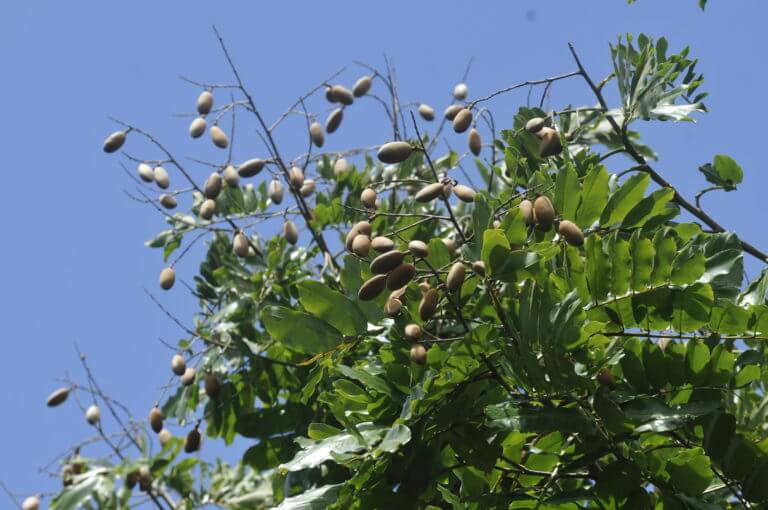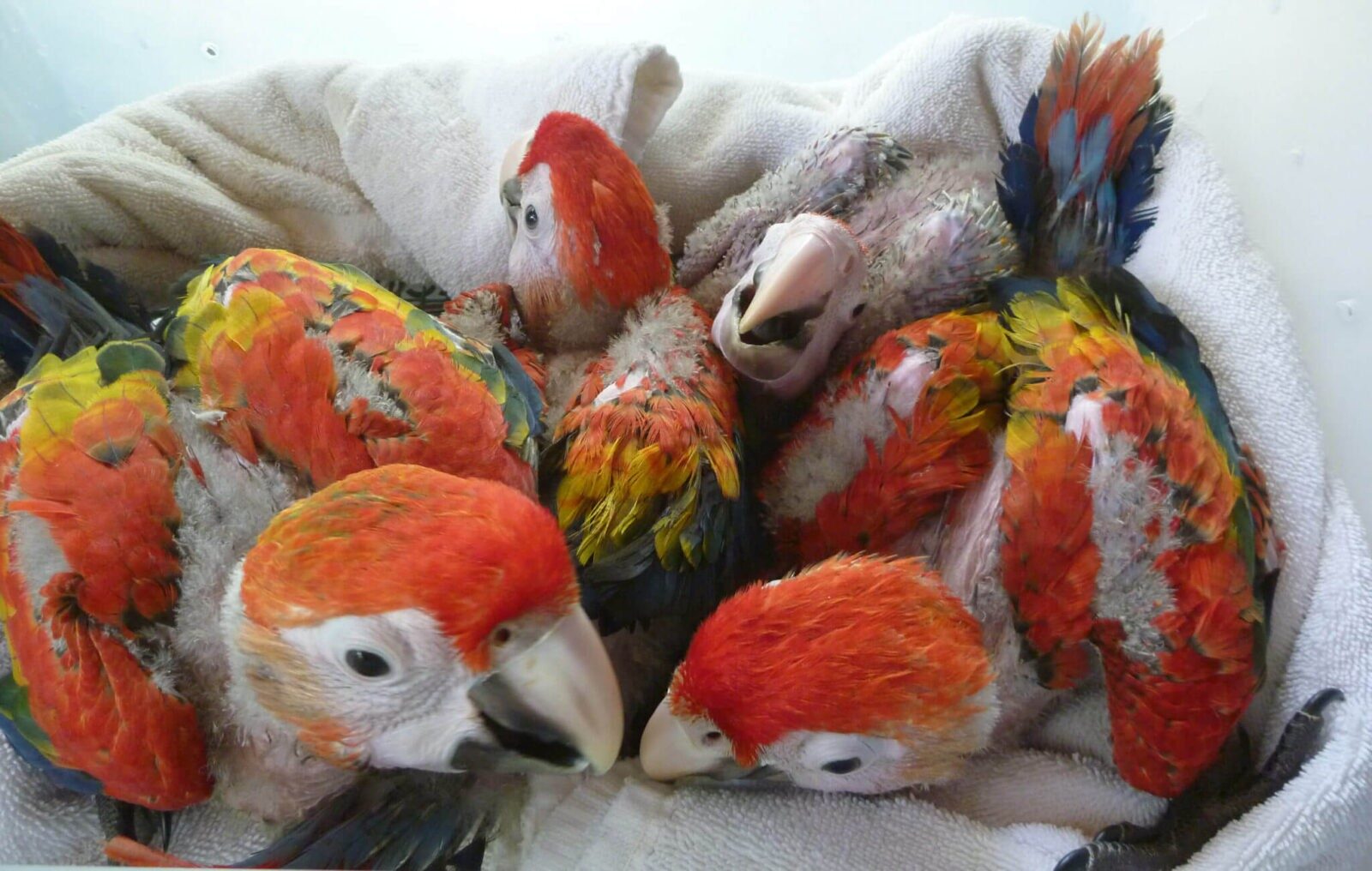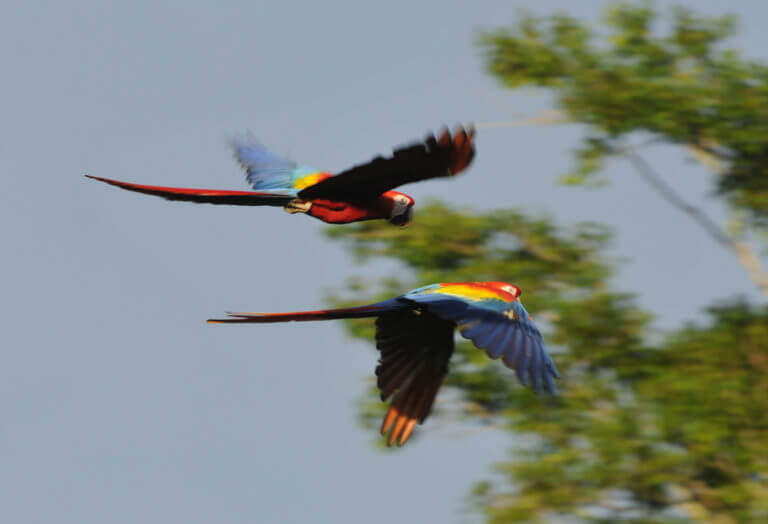Macaw Conservation
At Natuwa Sanctuary, we’re passionate about preserving the beauty and diversity of Costa Rican wildlife.
Our Macaw Conservation Program is a standout example of this dedication. We’re proud to offer these majestic birds a safe haven, and tirelessly work to bolster their populations through breeding and release programs. But we need your help.
With your support, we can continue to ensure Costa Rica’s skies stay lit up by the vibrant flight of macaws.
NATUWA, Macaw Conservation Sanctuary conducts a captive breeding program for Costa Rica’s macaws. In addition, the Sanctuary rescues, rehabilitates, and releases macaws back into the wild.
Many of these birds are confiscated by the Ministry of Environment and Energy (MINAE). The operations of the Animal Sanctuary are made possible through the support of volunteers (Please, visit our volunteer program), educational initiatives, ecotourism programs, and surrounding communities.
Scarlet macaw
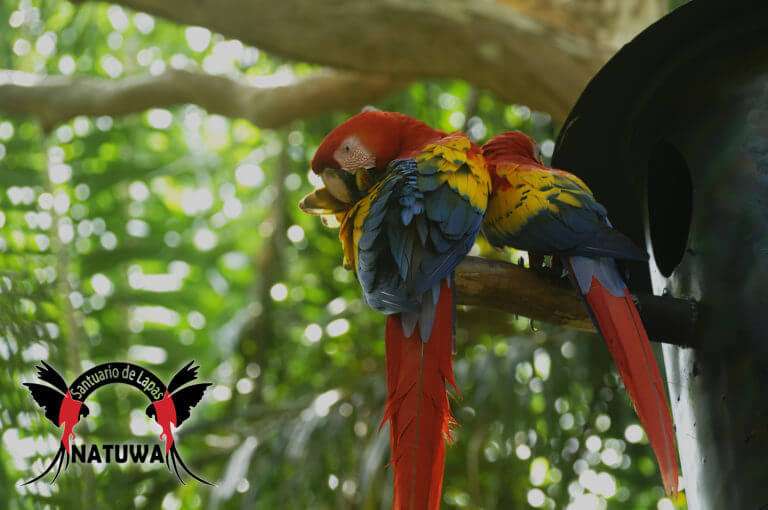
Great green Macaw
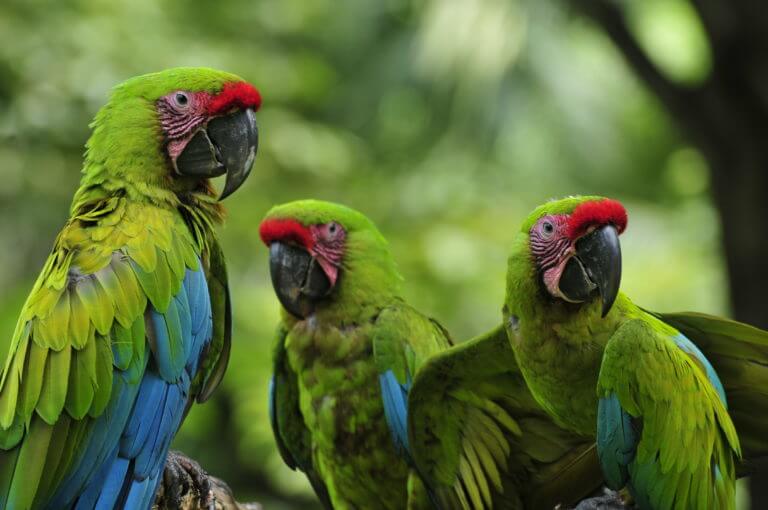
At Natuwa Sanctuary, the conservation of the Great Green Macaw is one of our highest priorities. This beautiful species faces increasing threats in its natural habitat, and we’re committed to its protection.
Our conservation program focuses on breeding, rehabilitation, and when possible, reintroduction of these magnificent birds back into the wild. But we need your support. Your contribution can make a difference in the lives of these birds.
NATUWA's Comprehensive Macaw Conservation Efforts
Community Involvement in the Rescue of Macaws
The conservation efforts at Natuwa are primarily directed towards combating the looting of nests and the illegal trading of chicks.
We work in close association with local communities to install artificial nests for wild scarlet macaws (Ara macao), and we are dedicated to the restoration of habitats that these birds need.
Our Macaw Management Program aids the Costa Rican government by rehabilitating confiscated Ara macao offspring from various regions across the country.
Rescue, Rehabilitation, and Release of Macaws
Our Macaw Management Program provides adequate conditions for macaw chicks, victims of illegal trade, to learn survival skills from adoptive parents.
Previously, these confiscated macaws didn’t have this opportunity. These skills are best learned through limited interaction with humans.
As a result, we are able to release completely wild macaws to forever fly in their natural environment.
Installation of artificial nests for macaws
An essential aspect of NATUWA’s macaw conservation program in Costa Rica is generating awareness about the importance of conserving macaws in their natural environment.
These stunning, colorful birds require human intervention, not just to remain free, but also for habitat restoration. Due to a lack of natural nests in their habitat, NATUWA provides artificial nests where macaws can raise their chicks.
This activity is carried out in conjunction with the community. Community members take care of the nests, preventing them from being looted, a task that is vital for the macaws to have reproductive success.
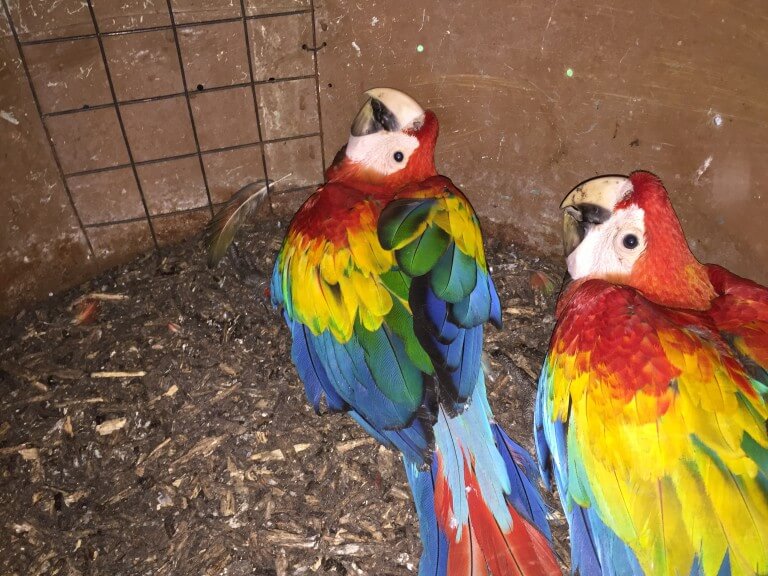
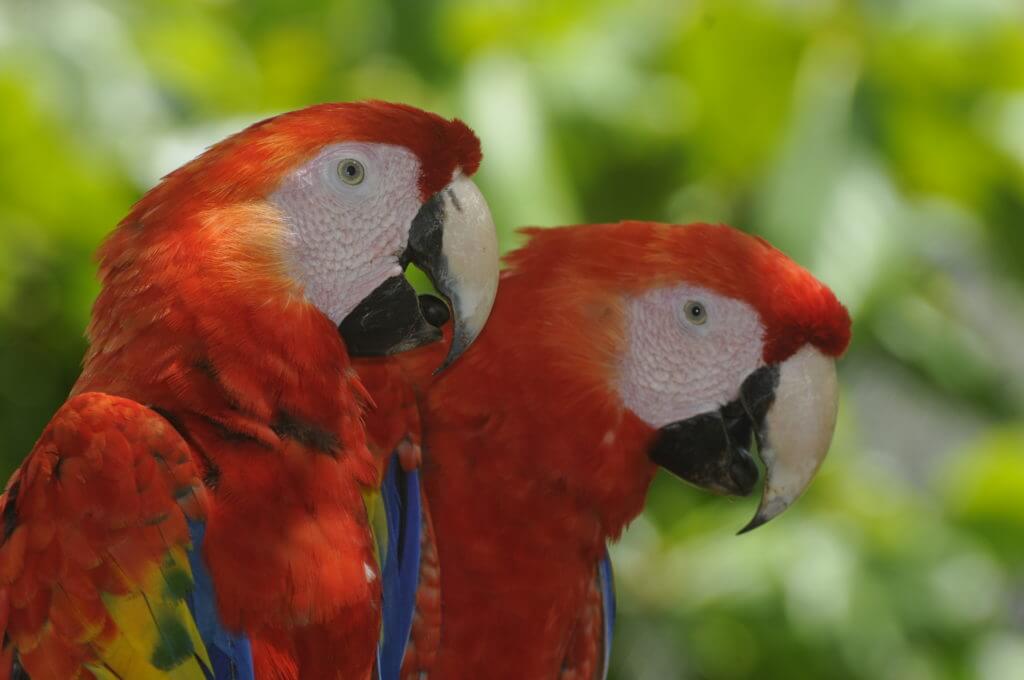
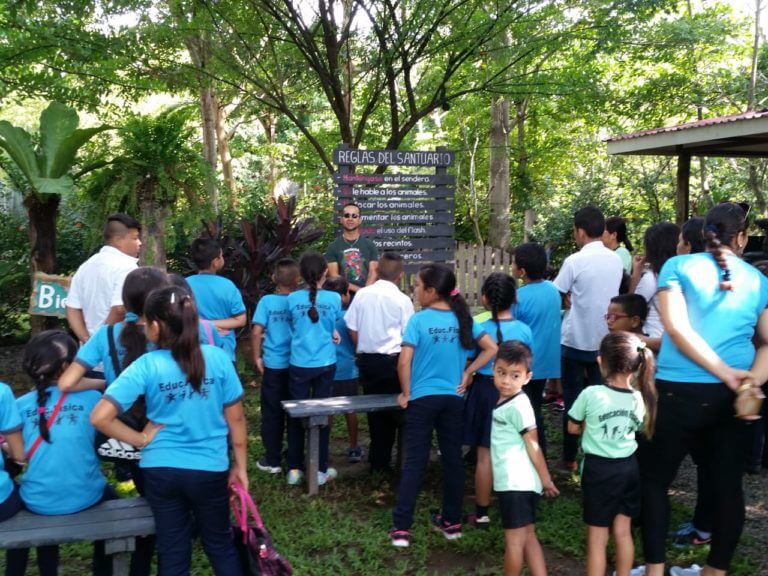
Research and environmental education
NATUWA Macaw Sanctuary actively engages in the education of university students from institutions such as the Universidad Técnica Nacional (UTN), Universidad Estatal a Distancia (UNED), and Universidad Nacional (UNA). We collaborate with these students on their research projects for their graduation theses.
Among the completed theses are the following: Development of a Parasite Prevention Protocol, Techniques for Environmental Enrichment for Macaws, Environmental Education Program, Analysis and Correction of Diets for Sanctuary Animals, and many others.
NATUWA is dedicated to the development of a macaw conservation program, which includes teaching local communities about ecotourism alternatives. This helps to generate a better local economy and ultimately contributes to the protection of wild macaws.
Ecological restoration
At NATUWA Sanctuary, we’ve planted native trees such as Jabillo, Guayacán, Surá, and Jobos. These contribute to creating a haven for local wildlife and for those animals that cannot be released back into the wild.
This lush green space provides an enriching environment that not only the macaws enjoy, but also enhances the aesthetic appeal of the community.
